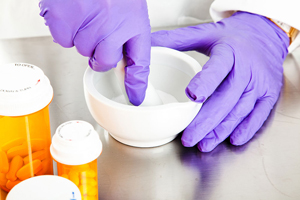
Several Ayurvedic medicines are available in India for cosmetic as well as therapeutic purposes. Normally, Ayurvedic medicines come with small quantities of heavy metals which act as active ingredient. However, due to lack of standardization in cultivation of the medicinal plants and environmental pollution, there are incidences of heavy metals being above the allowable limits in some of the drugs. But many drug manufacturers do not possess in-house analytical research laboratories to carry out heavy metal analysis method for evaluating the heavy metal content. Hence, there is a need to quantify the unbranded and branded segments of Ayurvedic medicines for their levels of toxicity if any, for their greater acceptability.
Another aspect which is of prime importance is the stability testing of herbal drugs. This is essential to determine if the quality of the herbal products varies with time due to effects of environmental factors which in turn helps to ascertain the recommended storage conditions and their shelf life. Measuring the chemical stability is not an easy task and is a job meant for the analytical chemistry laboratories.
This again brings to light the need for some potent tools by which quality control of herbal drugs can be ensured. Chromatographic analysis is being largely used as one such tool to identify, authenticate and control the quality of herbal drugs. Various kinds of such analysis techniques have come into being like gas chromatography, thin layer chromatography and hplc herbal analysis methods and so on. In fact, method development and validation by hplc is considered most effective in today’s times.
Standardization of herbal formulations will go a long way in contributing towards the manufacture of quality herbal products. Modern methods of standardization have to be adopted. Phytochemical studies of medicinal plants confirm the presence of phytochemicals in the plants which have anti-oxidant and curative properties to tackle several ailments. A comprehensive phytochemical analysis will alone reveal the extent of secondary metabolites which are responsible for the medicinal activity in the plant. Knowledge of the chemical constituents of the plant gained through phytochemical analysis of plant extracts will be of help while determining synthesis of complex chemical substances and bringing about standardization.
This brings into focus the need for analytical laboratories or analytical testing laboratories or analytical services laboratories which will be standalone institutions providing the necessary facilities like phytochemical analysis of medicinal plants etc to all drug manufacturers. The same need holds true in the nutraceutical industry which has also assumed popularity in recent times. Facilities for diet supplements testing or food supplements testing laboratories need to be established. Governments, corporations are increasingly contributing towards investment into herbal medicine research. As the public funding for this research grows more analysis in depth of the issues concerning herbal drugs is warranted. The importance of clinical research organizations and drug testing laboratories cannot be undermined in this regard. It is only through investing in infrastructure devoted to safety-monitoring can the issues related to making herbal drugs competitive with the modern medicine drugs be resolved. This will help to promote positive and reliable herbal medicine research that will contribute to global health.



